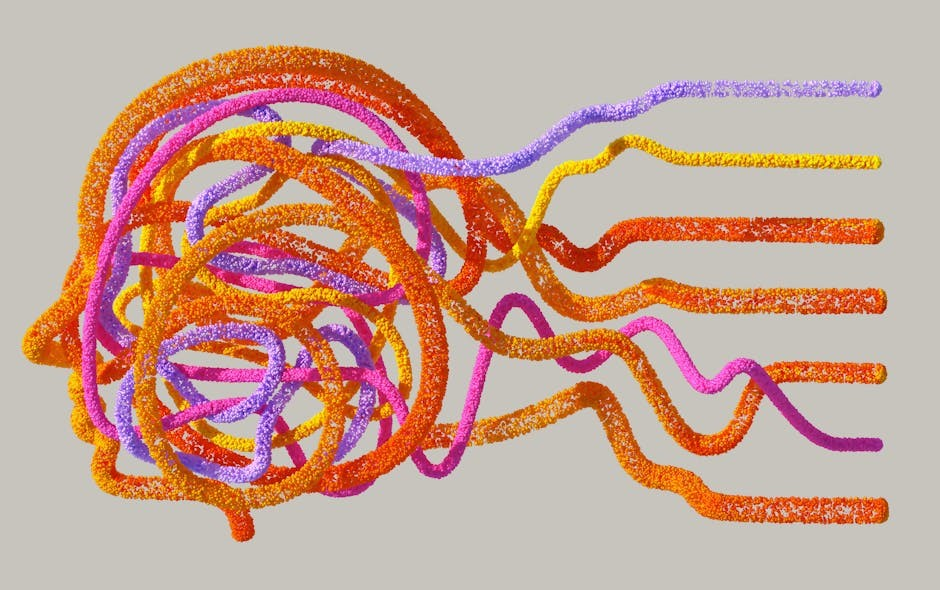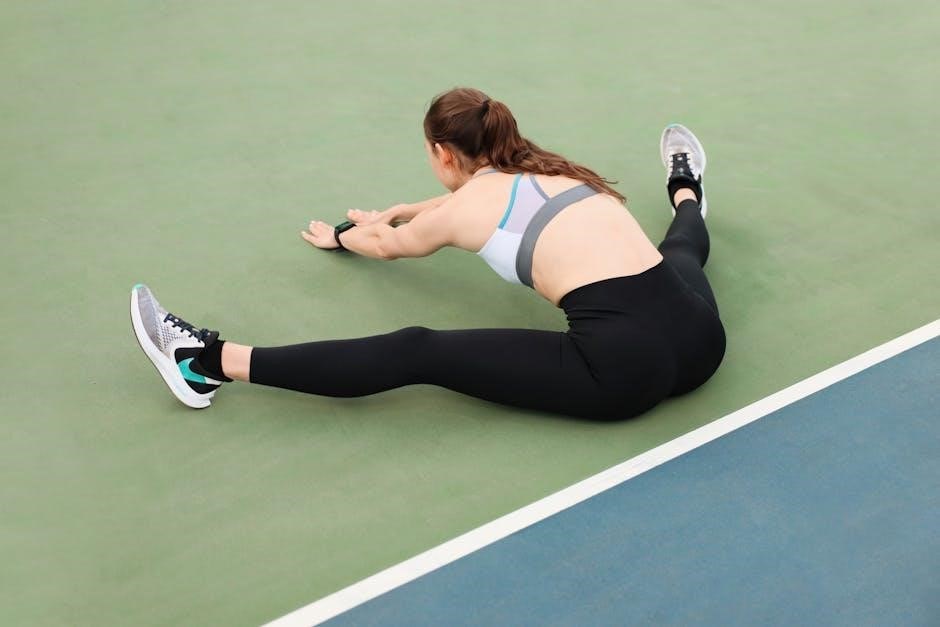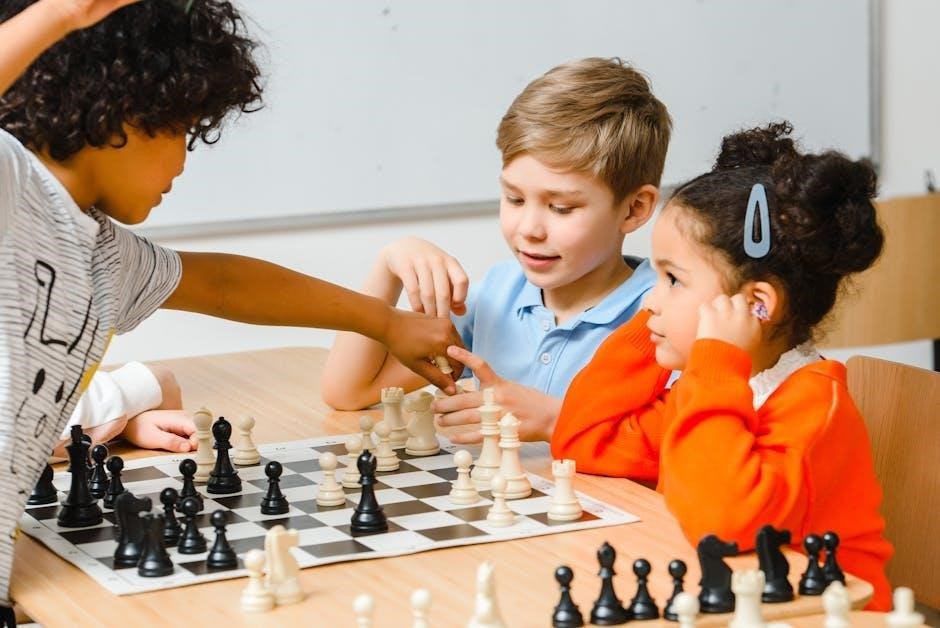Brain exercises are essential for managing dementia symptoms, improving cognitive function, and enhancing quality of life. These activities, tailored to individual needs, help slow cognitive decline and promote independence, supported by caregivers and professionals.
1.1 Overview of Dementia and Cognitive Decline
Dementia is a progressive syndrome characterized by a decline in memory, thinking, and communication skills, impacting daily life. It results from brain cell damage, often due to Alzheimer’s or vascular diseases. Cognitive decline varies among individuals, with symptoms worsening over time. Early stages may involve memory loss, while advanced stages can lead to difficulty with problem-solving and independent functioning. Understanding dementia’s progression is crucial for developing effective care strategies, including tailored brain exercises to manage symptoms and improve quality of life.
1.2 The Importance of Brain Exercises in Managing Dementia
Brain exercises play a vital role in managing dementia by slowing cognitive decline and improving memory. They enhance problem-solving skills, boosting confidence and independence. Tailored activities, supported by caregivers, help patients adapt to their condition, promoting mental and emotional well-being. Regular engagement in these exercises fosters a sense of purpose, reducing stress and anxiety. Incorporating brain exercises into daily routines is essential for maintaining quality of life and supporting overall brain health in dementia patients.
Benefits of Brain Exercises for Dementia Patients
Brain exercises help slow cognitive decline, improve memory, and enhance daily living skills, offering hope for managing dementia symptoms and improving overall brain health effectively.
2.1 Slowing Down Cognitive Decline
Brain exercises play a crucial role in slowing down cognitive decline in dementia patients by stimulating mental activity and strengthening neural connections. Activities like puzzles, memory games, and problem-solving exercises help maintain mental sharpness. Cognitive Stimulation Therapy (CST) is particularly effective, as it engages patients in structured sessions tailored to their abilities. Regular engagement in these exercises can delay the progression of cognitive impairment, allowing individuals to retain independence and quality of life for a longer period.
2.2 Improving Memory and Cognitive Function
Engaging in brain exercises can significantly improve memory and cognitive function in dementia patients. Activities such as memory games, crosswords, and problem-solving tasks help strengthen neural pathways, enhancing recall and mental clarity. Structured therapies, like Cognitive Stimulation Therapy (CST), focus on improving attention and memory through guided sessions. Consistent participation in these exercises can lead to noticeable improvements in cognitive abilities, helping individuals maintain mental acuity and independence for a longer period.
2.3 Enhancing Daily Living Skills
Brain exercises play a crucial role in enhancing daily living skills for dementia patients. By engaging in activities like problem-solving tasks, memory aids, and structured therapies, individuals can better manage daily routines. These exercises improve practical abilities, such as meal preparation and personal care, fostering independence. Interactive games and real-life simulations also help patients adapt to their environment, ensuring they can perform tasks confidently and safely, thereby improving their overall quality of life and self-reliance.

Types of Brain Exercises for Dementia Patients
Common brain exercises include cognitive stimulation therapy, memory games, puzzles, and problem-solving activities. Motor skill exercises and interactive tasks also play a significant role in cognitive engagement.
3.1 Cognitive Stimulation Therapy (CST)
Cognitive Stimulation Therapy (CST) is a structured, evidence-based approach designed to improve cognitive function in dementia patients. It involves engaging activities tailored to individual needs, focusing on memory, language, and problem-solving skills. CST is typically conducted in group or individual sessions, led by trained professionals, and aims to enhance daily living skills and overall mental well-being. Regular participation has shown to slow cognitive decline and boost confidence, making it a valuable tool in dementia care.
3.2 Memory Games and Puzzles
Memory games and puzzles are effective brain exercises for dementia patients, designed to stimulate cognitive function and memory recall. Activities like crosswords, Sudoku, and memory matching games enhance problem-solving skills and mental sharpness; These exercises can be adapted to different stages of dementia, ensuring they remain challenging yet achievable. Regular engagement in such activities, often facilitated by caregivers, helps maintain cognitive health and provides a sense of accomplishment, fostering independence and confidence.
3.3 Problem-Solving Activities
Problem-solving activities are crucial for dementia patients, fostering cognitive stimulation and practical skill retention. These exercises, such as assembling objects or planning tasks, encourage logical thinking and decision-making. Tailored to individual abilities, they help maintain independence and adaptability. Caregivers can assist by providing guidance, ensuring activities remain engaging yet manageable. Regular engagement in problem-solving tasks supports mental agility and confidence, proving beneficial as dementia progresses.
3.4 Motor Skill Exercises
Motor skill exercises are vital for dementia patients, focusing on maintaining dexterity, coordination, and physical function. Activities like puzzles, drawing, or using everyday objects stimulate both hands and brain. These exercises, often combined with cognitive tasks, enhance overall functionality. Caregivers can encourage participation by tailoring activities to the patient’s abilities, ensuring they remain engaging and achievable. Regular practice helps preserve independence and confidence, contributing to a better quality of life as dementia progresses.
Role of Caregivers in Implementing Brain Exercises
Caregivers play a crucial role in implementing brain exercises for dementia patients, providing support, guidance, and encouragement. Their involvement ensures consistency and adaptability of activities, fostering engagement and progress.
4.1 Involving Family Members in Care
Involving family members in care enhances the effectiveness of brain exercises for dementia patients. Family caregivers can provide emotional support, monitor progress, and tailor activities to the patient’s preferences. Their active participation ensures consistency and personalizes the intervention, making it more engaging and meaningful. This collaborative approach also reduces the burden on professional caregivers and fosters a supportive environment, promoting overall well-being and cognitive stimulation for the patient.
4.2 Professional Caregiver Support
Professional caregivers play a vital role in implementing brain exercises for dementia patients. They bring expertise in designing personalized activity plans, ensuring exercises are both effective and engaging. Professionals provide guidance on selecting appropriate tasks, monitoring progress, and adapting activities as cognitive abilities change. Their support also extends to educating family members, enabling them to contribute meaningfully to care. By leveraging evidence-based techniques, professional caregivers ensure a structured and consistent approach, enhancing the overall effectiveness of brain exercises and improving patient outcomes significantly.

Technology and Brain Exercises
Technology enhances brain exercises through apps, VR, and digital tools, offering interactive and accessible cognitive training. These innovations provide engaging, personalized experiences, improving memory and mental agility effectively.
5.1 Use of Mobile Apps for Cognitive Training
Mobile apps are revolutionizing cognitive training for dementia patients. These apps offer interactive games, puzzles, and memory exercises tailored to individual needs. They provide daily mental stimulation, improving memory and cognitive function. Apps like Lumosity and BrainHQ feature activities designed to enhance attention, problem-solving, and processing speed. Regular use can help slow cognitive decline, fostering independence and confidence. Caregivers can monitor progress, ensuring personalized support and engagement. This technology is accessible, making brain exercises convenient and enjoyable for patients.
5.2 Virtual Reality (VR) in Dementia Care
Virtual reality (VR) is emerging as a groundbreaking tool in dementia care, offering immersive experiences that stimulate the mind and emotions. VR environments can recreate familiar settings, reducing anxiety and agitation. Applications like virtual tours or interactive games provide cognitive stimulation and enjoyment. Additionally, VR can assist in therapy, such as exposure therapy for anxiety or phobias. This technology enhances engagement and provides a sense of control, improving overall well-being for dementia patients while offering caregivers innovative ways to support their loved ones.

Adapting Exercises to Dementia Progression
Exercises must evolve with the progression of dementia to remain effective. Activities are tailored to the patient’s changing abilities, ensuring engagement and enjoyment without causing frustration or stress.
6.1 Tailoring Activities to Individual Needs
Tailoring brain exercises to individual needs ensures effectiveness and engagement. Assessing cognitive levels and interests helps create personalized plans. Activities are adjusted to match abilities, fostering confidence and enjoyment. Caregivers and professionals play a key role in adapting exercises to suit progression, ensuring they remain challenging yet achievable. This approach promotes independence and maintains quality of life, addressing the unique needs of each dementia patient.
6.2 Adjusting Difficulty Level Over Time
As dementia progresses, brain exercises must be adjusted to match the patient’s changing abilities. Regular assessments ensure activities remain challenging yet achievable. Simplifying tasks or introducing new ones helps maintain engagement without causing frustration. Caregivers and professionals work together to gradually modify exercises, ensuring they align with the patient’s cognitive and functional capacity. This adaptive approach keeps the exercises effective and motivating, fostering continued mental stimulation and overall well-being.
Combining Physical and Mental Exercises
Combining physical and mental exercises enhances brain health and overall well-being for dementia patients. Activities like walking or yoga boost blood flow, supporting cognitive function and memory retention.
7.1 The Role of Physical Activity in Brain Health
Physical activity plays a crucial role in maintaining brain health, particularly for dementia patients. Regular exercise improves blood flow to the brain, enhancing oxygen and nutrient delivery. It stimulates neurogenesis, boosting cognitive function and memory retention. Studies show that physical activity reduces the risk of dementia by promoting neuroprotective mechanisms. Activities like walking, yoga, or tai chi are highly beneficial, as they combine physical movement with mental focus, supporting overall well-being and slowing cognitive decline.
7.2 Integrating Exercise Routines with Cognitive Training
Combining physical activity with cognitive exercises creates a holistic approach to brain health for dementia patients. This integration enhances coordination, balance, and mood while stimulating mental functions. Activities like tai chi or dance classes merge movement with memory and focus tasks. Structured routines ensure consistency, maximizing benefits. This dual approach supports overall well-being, fostering independence and improving quality of life for individuals with dementia, as supported by clinical recommendations and care guidelines.
Success Stories and Case Studies
Success stories highlight how brain exercises improve dementia patients’ lives. Studies show activities like CST and memory games enhance cognitive function, offering hope and practical benefits.
8.1 Real-Life Examples of Effective Brain Exercises
Real-life examples demonstrate the effectiveness of brain exercises for dementia patients. A study highlighted a patient who engaged in Cognitive Stimulation Therapy (CST), showing improved memory retention and daily functioning. Another case involved a patient using memory games, resulting in enhanced problem-solving skills. These examples illustrate how tailored activities can significantly impact cognitive health, offering practical hope for managing dementia symptoms and improving quality of life.
8.2 Patient Testimonials and Outcomes
Patient testimonials reveal positive outcomes from brain exercises. One patient shared, “Memory games helped me recall familiar faces and tasks, improving my daily life.” Another noted, “Cognitive training boosted my confidence and independence.” These testimonials highlight the tangible benefits of brain exercises, showcasing improved memory, problem-solving, and overall well-being. Such outcomes underscore the effectiveness of these interventions in managing dementia and enhancing patients’ quality of life.
Monitoring Progress and Adjustments
Regular assessments by caregivers and professionals ensure tailored adjustments to brain exercises. Tracking cognitive improvements and adapting activities to current abilities supports ongoing engagement and effectiveness.
9.1 Tracking Cognitive Improvement
Tracking cognitive improvement in dementia patients involves regular assessments and observations. Tools like cognitive assessments and memory tests help measure progress. Problem-solving tasks and daily living assessments provide insights into functional abilities. Caregivers and professionals play a crucial role in documenting changes. This data helps adjust exercise plans and offers reassurance, fostering a tailored approach to brain health;
9.2 Making Necessary Adjustments to Exercise Plans
Adjusting exercise plans involves monitoring progress and adapting activities to meet evolving needs. As dementia progresses, simplifying tasks or introducing new challenges ensures engagement without frustration. Caregivers and professionals collaborate to refine routines, incorporating feedback and observational insights. Regular reassessments help maintain relevance and effectiveness, ensuring activities remain stimulating and appropriate for the patient’s current cognitive and functional abilities. This dynamic approach supports sustained brain health and overall well-being.
Safety Considerations
Ensuring patient safety is crucial during brain exercises. Avoid overexertion and stress by creating a comfortable environment. Adapt activities to individual needs to prevent physical or emotional harm.
10.1 Ensuring Patient Safety During Exercises
Ensuring patient safety during brain exercises is critical. Caregivers should monitor activities to prevent overexertion and stress. Adaptive tools and environments help minimize risks, ensuring exercises are enjoyable and beneficial without causing harm. Regular assessments and professional guidance are essential to tailor activities to individual capabilities, promoting physical and emotional well-being. Safety measures should be personalized, focusing on the patient’s comfort and cognitive limitations to avoid adverse reactions. This approach fosters a secure and supportive setting for dementia patients.
10.2 Avoiding Overexertion and Stress
Avoiding overexertion and stress is vital when implementing brain exercises for dementia patients. Caregivers should identify signs of fatigue or frustration, such as irritability or withdrawal, and pause activities if necessary. Encouraging breaks and incorporating positive reinforcement helps maintain engagement. Exercises should be tailored to the patient’s energy levels and cognitive capacity to prevent emotional or physical strain. This balanced approach ensures activities remain therapeutic and enjoyable, fostering a calming and supportive environment for dementia patients. Regular monitoring is essential to adapt routines as needed.
Brain exercises offer effective strategies to improve cognitive function and enhance overall well-being for dementia patients. Regular practice, tailored to individual needs, fosters mental stimulation and independence, supported by caregivers.
11.1 Summary of Key Points
Brain exercises are crucial for managing dementia, offering benefits like cognitive function improvement and enhanced daily living skills. They adapt to disease progression, ensuring continued mental stimulation. Caregivers play a vital role in implementation, supported by technology such as mobile apps and VR. Combining physical and mental exercises further supports brain health. Monitoring progress and safety considerations are essential for effective practice. Further resources, including PDF guides, provide comprehensive support for caregivers and patients.
11.2 Encouragement for Continued Practice
Consistent engagement in brain exercises can have a positive impact on dementia patients’ cognitive and emotional well-being. Encourage patients to embrace these activities as part of their daily routine, celebrating small achievements. Caregivers play a vital role in motivating and supporting continued practice. With patience and persistence, these exercises can empower patients to maintain independence and quality of life, fostering hope and resilience in their journey with dementia.

Resources for Further Reading
Explore recommended PDF guides and online tools for comprehensive insights into brain exercises for dementia patients, offering practical strategies and expert advice for caregivers and professionals.
12.1 Recommended PDF Guides on Dementia Care
Several PDF guides provide comprehensive strategies for dementia care, including brain exercises. The World Health Organization’s “iSupport for Dementia” offers practical tools for caregivers. Additionally, guides like “Peaceful Mind” and “Cognitive Stimulation Therapy” manuals detail evidence-based approaches to improve cognitive function. These resources are available online and are invaluable for caregivers and professionals seeking structured programs to support dementia patients effectively.
12.2 Additional Online Resources and Tools
Beyond PDF guides, numerous online resources offer tools and support for dementia care. Websites like Alzheimer’s Society and dementia.org provide interactive brain exercises, care tips, and community forums. Mobile apps such as “BrainHQ” and “Lumosity” offer tailored cognitive training. Online platforms also feature webinars, expert advice, and virtual support groups, empowering caregivers with practical strategies. These resources complement PDF guides, ensuring a holistic approach to dementia management and cognitive stimulation.

